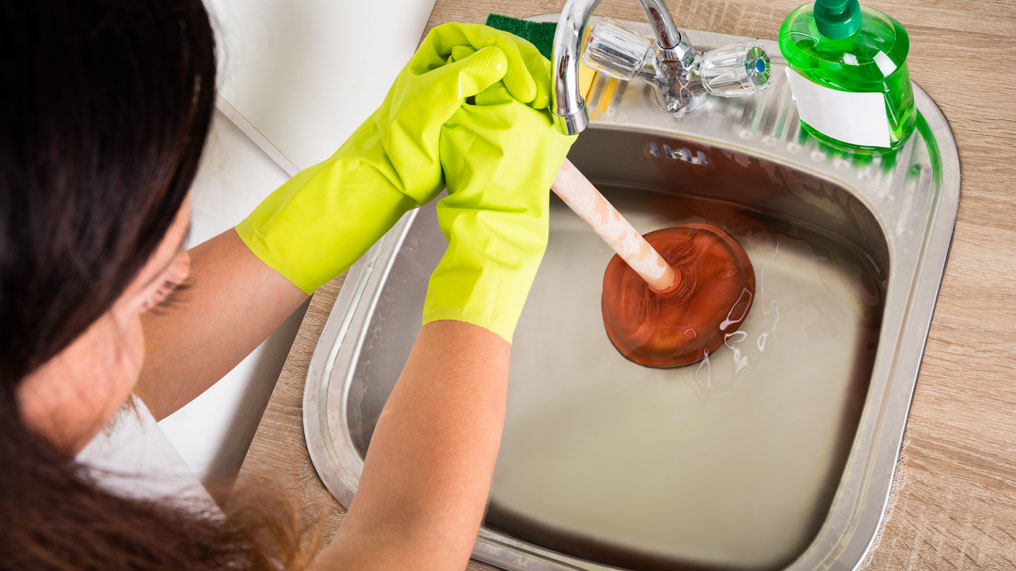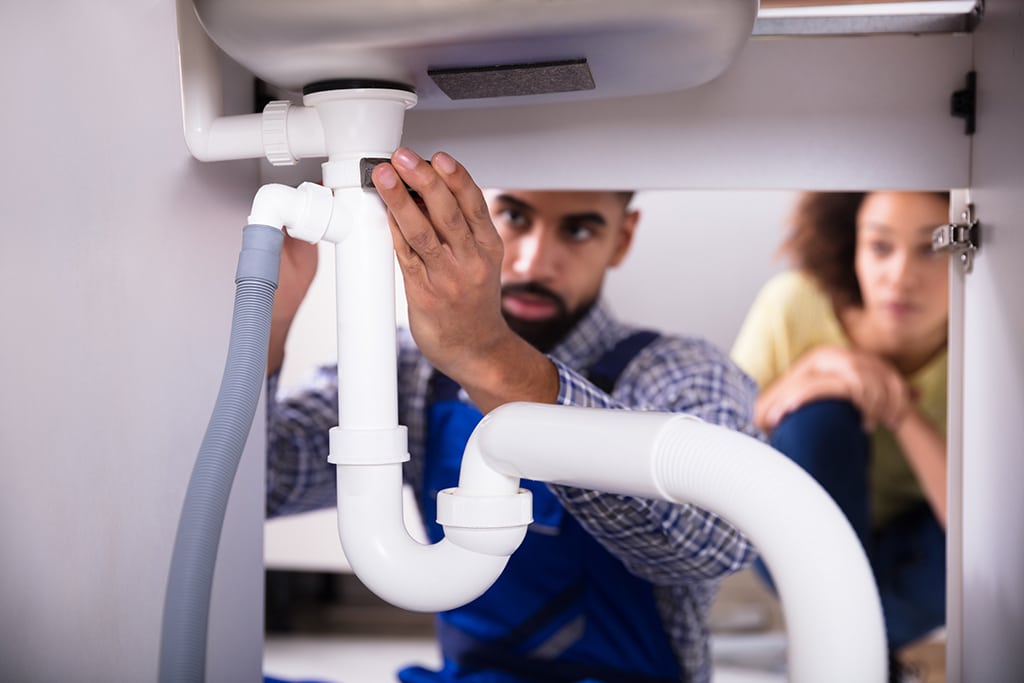Methods for Addressing a Blocked Drain Before Hiring Expert Plumbers
Methods for Addressing a Blocked Drain Before Hiring Expert Plumbers
Blog Article
Each person seems to have their private theory involving How to handle a clogged drain in your home.

Intro
Handling an obstructed drainpipe can be an aggravating experience, disrupting everyday tasks and potentially triggering damages to your residential property. Nevertheless, before connecting to plumbing specialists, there are actions you can take to resolve the concern on your own. In this overview, we'll discover DIY options and safety nets to deal with a blocked drain effectively.
Identifying the Problem
The primary step in dealing with a blocked drain is recognizing the indicators. Slow-moving drain, gurgling noises, foul odors rising from drains, or water backing up prevail indications of a blocked drain. Recognizing these indications early can assist prevent better complications.
Typical Reasons For Blocked Drainpipes
Understanding the factors that contribute to drain pipes blockages is necessary for efficient resolution. Typical perpetrators include hair, soap residue, oil, food debris, and international things like hygienic items or paper towels. Tree roots attacking below ground pipes can additionally create significant blockages.
DIY Solutions
For small blockages, numerous do it yourself options can be effective. Putting boiling water down the drain can help dissolve grease and particles. Baking soda and vinegar or a mix of salt and cooking soft drink can function as natural cleansers. Using a plunger or plumbing snake to displace blockages is one more choice.
Tools and Tools
Having the right devices accessible can make DIY drainpipe cleaning a lot more reliable. A plunger is a flexible tool for clearing blockages in sinks, toilets, and showers. A plumbing serpent or auger can reach deeper obstructions, while drainpipe cleaning chemicals can be utilized very carefully for stubborn clogs.
Preventive Measures
To avoid future blockages, embracing safety nets is crucial. Set up drainpipe guards or strainers to capture hair and particles before they enter the pipes. Routinely flush drains pipes with hot water to dissolve oil accumulation, and stay clear of getting rid of grease or strong waste down the tubes.
When to Call a Professional
While do it yourself options can fix small blockages, specific indications suggest the demand for professional assistance. Persistent blockages, foul odors despite cleaning initiatives, or several drains supporting at the same time are warnings that warrant expert intervention.
Choosing the Right Plumbing Solution
When choosing a pipes solution, take into consideration aspects such as experience, licensing, and customer evaluations. Pick a credible plumber with a performance history of high quality workmanship and clear prices practices.
Price Factors to consider
The price of professional drain cleaning company can differ depending on the severity of the blockage and the plumbing technician's prices. Demand quotes from several providers and ask about any added fees to make certain openness and avoid surprises.
Safety and security Measures
When attempting DIY drainpipe cleaning, focus on safety and security. Use protective gloves and glasses to prevent contact with damaging chemicals or germs. Never ever mix different drain cleansing products, as this can create hazardous fumes.
Instance Studies
Real-life examples show the efficiency of DIY options and the significance of prompt professional treatment in fixing drain clogs.
Final thought
By adhering to the pointers detailed in this overview, you can effectively deal with obstructed drains and prevent future plumbing issues. Whether selecting do it yourself remedies or looking for expert help, prompt action is crucial to preserving a healthy pipes system and preserving the honesty of your home.
How to Clear a Clogged Drain Yourself (And When to Call In the Professionals)
What Can Clog a Drain
Dirt Skin flakes Hair Grease Soap scum Food Offset pipes Tree roots Small objects Mineral buildup DIY Tricks to Unclog a Drain
You can fix this! Once you have identified the source of the clog (or have a vague idea), you can try one or a combination of these fixes in order to clear your plumbing.
Wire Hanger or Snake
Untangle and clear out hair from a drainpipe with a homemade snake. Use a straightened-out wire hanger with a 90-degree angle hook to locate the clog and drag out any unwanted material.
Remember not to push the clog further down to where the wire hanger cannot reach! If you need to follow up with a plunger, give it a try. Your efforts might be more successful after it’s been wire-snaked.
If you want to get fancy and don’t have a wire hanger to spare, head to the store and pick up a hand-operated drain snake. You can get one for $10-$30. It may save you the hassle, and provide additional length to reach deep into the clogged pipe.
Plunger
A cup plunger has a suction cup attached to a wooden handle. The rubber creates a seal around the drain, and increases the pressure force of the plunger.
Plunge for 30-second increments to loosen the clog. This may need to be repeated over the course of 15-20 minutes. Once plunged, run the water to flush the remaining material out of the drain.
Remember– never use a plunger if you have used a chemical drain cleaner. These chemicals can splash up from the force of the plunger and cause serious injury or burns.
Boiling Water
Hot water can sometimes break up materials into a flushable amount. Dirt, grease, and soap buildup requires heat in order to unstick from surfaces.
Take your kitchen kettle and heat your water to a boil. Once it reaches a rolling boil, pour it directly down the drain into the blockage. Carefully follow with plunging, if necessary.
Don’t worry if this takes more than one try! It can often take multiple kettles and repeated plunging in order to clear a particularly stubborn clog.
Chemical Drain Cleaner
As a last resort, pick up a bottle of chemical drain cleaner. Drain-cleaning chemicals are potent, and not very good for the environment.
You may need to wear protective eyewear in gloves before handling your bottle of chemical drain cleaner. Follow the instructions printed on the bottle, and flush with water as soon as the instructions allow. Do not follow with plunging.
Baking Soda and Vinegar
As a safer alternative to chemical drain cleaner, baking soda and vinegar can create a chemical reaction that clears tough clogs.
Combine one cup of cleaning vinegar with one cup of boiling water, and set aside. Once you have done this, pour half a cup of baking soda down the drain. Give the baking thirty seconds to settle and cover a large portion of the problem drain.
Following the baking soda, pour down your vinegar and hot water solution. Once the vinegar and baking soda combine, the mixture will bubble and fix. Let this reaction fizzle in the drain for about an hour.
After an hour, follow with a kettle’s worth of hot water. The heat and liquid should flush out any remaining material.
When to Call a Plumber
If your DIY attempts haven’t cleared your clog drain, it’s time to call in a professional. It’s not worth losing access to your kitchen sink or high-traffic bathroom. A clog in a vital area can keep you from the things you’d rather be doing, and derail your routine.
Anytime a clog is causing water to spread is a time to call in a plumbing service. What starts out as a little bit of water can quickly grow into serious, expensive water damage.
Additionally, a serious clog can result in burst pipes or serious leaks. Make sure you know when to take it seriously!
https://myguysnow.com/how-to-clear-a-clogged-drain-yourself-and-when-to-call-in-the-professionals/

I am just very enthusiastic about Tips for Dealing with Clogged Drains and Sewer Lines and I hope you appreciated our blog entry. Sharing is caring. You never know, you may be helping someone out. Thank you for taking the time to read it.
Start Now Report this page